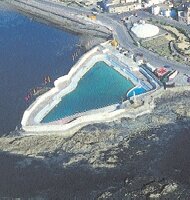Estates Managers

Managing Historic Places
Historic places make a crucial contribution to local identity and distinctiveness. Whether employed by a local authority, government agency or independent body, you have a fundamental role in caring for and managing the historic environment in your area. Buried archaeology, historic buildings, monuments and landscapes are affected by the management of cemeteries, buildings, parks, woodland and structures.
A management plan sets out a programme of maintenance and improvement, informed by an assessment of the significance and vulnerability of your property. It is generally required to obtain funding.
Decisions
Understanding the nature, condition and potential of historic places is the basis for rational decisions about their management, use, alteration or disposal. Documentary research, geophysical survey, historic buildings analysis, local knowledge and professional advice may be required.
Practical advice can be sought from your local authority and English Heritage regional teams. Local and national amenity groups are a useful source of specialist information. The HELM project provides online guidance and policy to assist the decision-making process. There is also the opportunity to sign up for training.
Access
The historic environment enhances the quality of our lives through its use for cultural, educational, leisure and service provisions. There is great potential in ensuring access to and support from the community. Physical access and reuse is possible without compromising the character and quality of landscapes and heritage assets.
Maintenance
Regular maintenance and repair should be part of an ongoing programme to avoid decay and loss of irreplaceable assets.
English Heritage maintains a Buildings at Risk register (BAR), which lists neglected historic buildings and monuments. By defining the scale of the problem, requirements for repair and reuse can be identified. A similar approach has been adopted for Parks and Gardens & Battlefields. Some local authorities compile lists of locally significant buildings.
Guidance and policy documents are available on this website when accessed through the website's five topic buttons: Regeneration & Design, Understanding & Recording, Place & Placemaking, Managing & Protecting and Funding. English Heritage documents can also be searched and downloaded as a PDF by using the Guidance Library.
The HELM website has a list of guidance produced by local authorities, amenity groups and relevant bodies which can also be found using the Guidance Library. Case Studies may be searched for examples of good practice across the country.
HELM offers training for councillors and officers in local authorities and government agencies.
